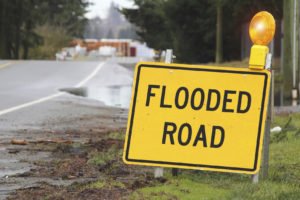Disaster risk is escalating and coastal communities are on the frontline of the Anthropocene, writes Professor Bruce Glavovic – EQC Chair in Resilience and Natural Hazards Planning at Massey University.
 An excerpt (read in full):
An excerpt (read in full):
Human activities have made such a significant impact on the Earth since the 1800s -and post-World War 2 in particular – that a new geological era has been proposed: The Anthropocene, or the ‘age of humans’.
This era of unprecedented global change is posing significant challenges for communities all over the world, including here in New Zealand.
‘Business as usual’ trajectories of population growth and economic development are not sustainable. Disaster risk is escalating. Nowhere are these challenges more obvious than in cities and towns ‘at the water’s edge’- along our rivers and the seashore. These communities are on the frontline in the Anthropocene. Their success or failure in building resilience and sustainability will set a benchmark for humanity.
The experiences of diverse coastal communities in New Zealand show that reducing coastal hazard risk and adapting to a changing climate is far from simple, and it is invariably contentious. Communities prone to riverine flooding face similarly vexing challenges.